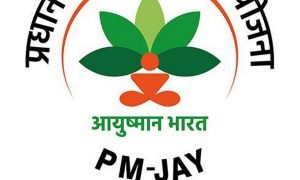Ineed some clarification on taxation rules where contribution made by the employer beyond Rs 7.5 lakh per year (EPF, NPS, SA) is made taxable in the hand of the employee. My queries are:
Read More: Windfall tax on crude oil slashed to Rs 5,000/tonne: Report
1. Whether contribution towards VPF is also taken into consideration (for arriving at Rs 7.5 lakh/year figure).
2. Please also clarify whether interest earned from previous year’s employer’s contribution where aggregate contribution exceeded Rs 7.5 lakh per year) is taken into consideration for arriving at Rs 7.5 lakh per year figure.
Reply by Balwant Jain, an investment and tax expert
The contribution made by an employer to employee’s provident fund account used to be fully tax free in the hands of the employee without any monetary limit as long as it did not exceed 12% of the basic salary and dearness allowance. However, the law was amended in 2020. Now an absolute cap of Rs 7.50 lakh has been placed on the aggregate of contributions made by an employer to recognised provident fund, National Pension System and an approved superannuation fund taken together for an employee in a year.
Read More: Income tax survey at Hinduja Group entities
Any amount in excess of Rs. 7.50 lakh contributed by the employer to these accounts taken together in a year is treated as perquisite in the hands of the employee and gets included in his salary and taxed at the slab rates. Even the interest or income accrued in respect of such excess contribution to these three accounts is also required to be included in the value of perquisite of the employee year after year.
Please note that the contribution towards VPF i. e. voluntary contribution made by the employee to his own provident fund account beyond the permitted limit is not considered while arriving at the aforesaid limit of Rs 7.50 lakh. This is so because this is the amount of contribution made by the employee and not by the employer.
The question of including, the interest accrued in respect of contribution made by the previous employer, in the aforesaid limit of 7.50 lakh does not arise as the interest cannot be treated as contribution of the employer. The interest credited in respect of contribution made by your previous employer as well as the current employer is fully tax free in your hands as long as you are employed in one company or another company.
Read More: Tax Calendar for December 2023: Check DUE DATES This Month For Better Tax Planning
It is only the interest attributable towards the excess contribution which will get taxed prospectively and interest in respect of contribution made by the employer even if it was beyond Rs 7.50 lakh in those prior years will continue to be tax free in your hands.





































